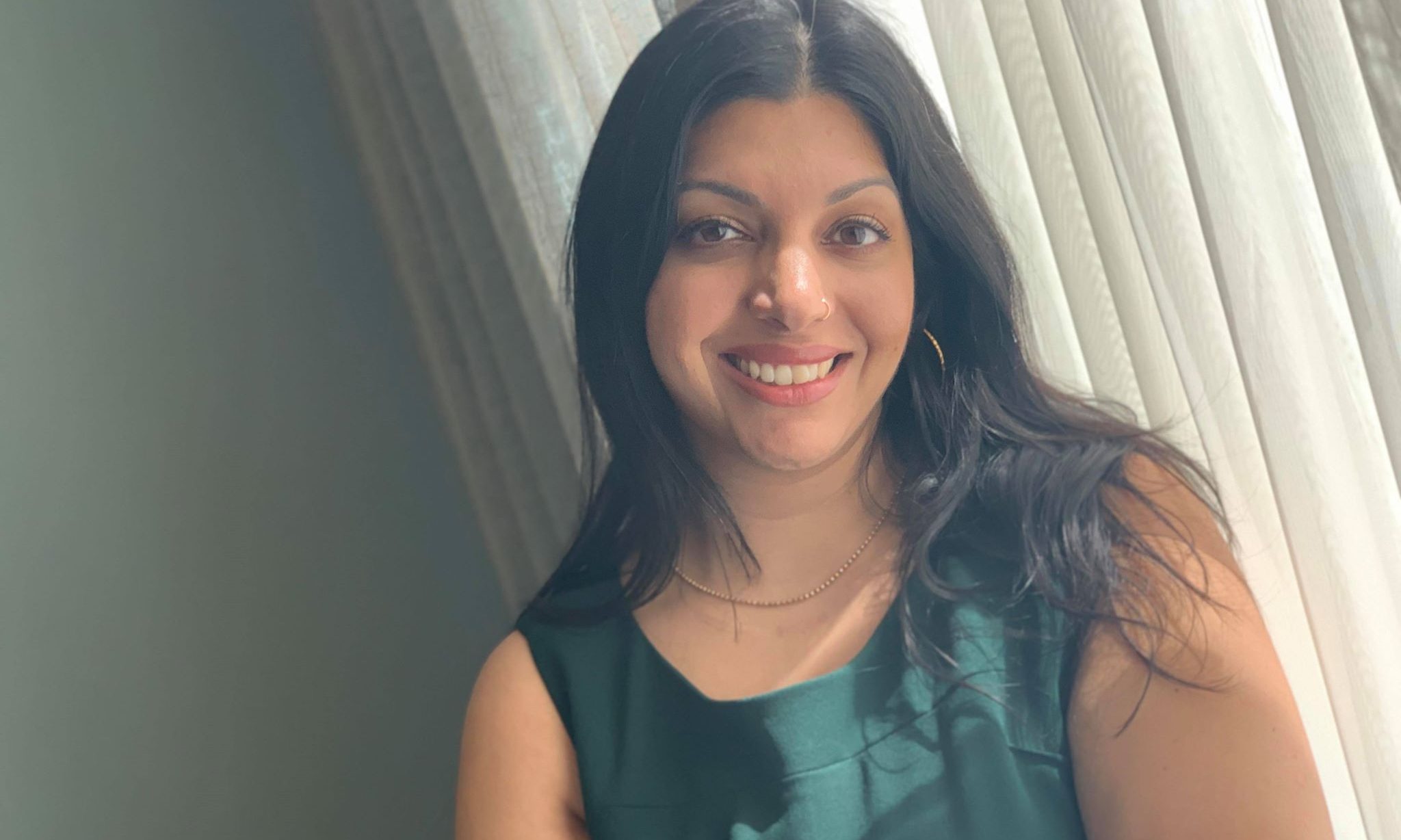Politics
Massachusetts Marijuana Regulator Talks Social Equity And The Presidential Election

As more states enter the growing landscape of legal marijuana, jurisdictions are taking on the responsibility of addressing social justice and equity for communities targeted by the drug war in their legislation earlier in the process instead of trying to address the issue later, as has been the case in many states that have ended cannabis prohibition to date.
For Shaleen Title, the sea change is timely and welcome.
In September 2017, the drug policy activist and attorney became one of five members of the Massachusetts Cannabis Control Commission after her appointment by the state’s governor, treasurer and attorney general. The body is tasked with overseeing the commonwealth’s marijuana legislation, and Title helped draft its mandate to include individuals from communities disproportionately harmed by prohibition in the legal industry. The Commission is also charged with reducing barriers to entry for people of color, women and veterans.
Since legalization went into effect, the commission voted to initially limit social consumption licenses exclusively for equity program participants and craft cooperatives, and discussed allowing only microbusinesses to deliver directly to consumers. Title and her fellow commissioners will consider these types of licenses this spring.
But Massachusetts isn’t alone in looking for ways to make the marijuana industry more equitable.
Rhode Island lawmakers recently filed a bill titled the Cannabis Equity Act of 2019 that calls on the Ocean State “to ensure that persons most harmed by cannabis criminalization and poverty” receive the necessary assistance to become entrepreneurs and employees in the industry. Meanwhile, black lawmakers in New York are threatening to block legalization efforts until assurances are made that communities of color will benefit from the multi-billion dollar industry.
Massachusetts’s Social Equity Program is accepting applications for participants, and vendors are invited to submit their bids to offer equity program applicants training, mentorship and technical assistance through April 5. Despite swift progress over the last year, just ten retail stores have opened in Massachusetts so far, and reporting from the Commission’s own data shows that few black- and Latinx-owned businesses have submitted completed applications for cannabis licenses.
To learn more about the Commonwealth’s progress to date, Marijuana Moment spoke to Commissioner Title via email and asked about what she and fellow regulators are doing to further reduce barriers to entry for underrepresented communities. She also addressed how cannabis social equity has become a major policy issue in the 2020 presidential election.
This interview has been lightly edited for clarity and length.
(Full disclosure: Title and Marijuana Moment’s publisher co-founded the nonprofit organization Marijuana Majority in 2012 and have worked together on various drug policy reform efforts.)
Marijuana Moment: Massachusetts’ cannabis equity program is officially live. How is it going so far?
Shaleen Title: While it’s very early, it’s an important time to remember the vision that the people of Massachusetts put forth through the legalization ballot question and legislation. Our mandates to include businesses of all sizes, farmers, craft cooperatives, people of color, women, veterans and disproportionately harmed communities paint a vivid picture of an industry defined by meaningful participation. We are fostering a market where people from all different backgrounds provide all types of experiences for consumers in a regulated, consistent environment.
Like everyone who feels strongly about the underlying goals of the program—reducing barriers to entry, providing professional and technical services for those facing systemic barriers, and promoting reparative practices in the cannabis industry—I am often frustrated, because it never feels like it’s moving fast enough. But I remind myself that at this early phase, even a 5 percent shift in the right direction will compound into a massive impact as the industry grows.
MM: The Commission voted to initially limit social consumption licenses to social equity program participants and craft cooperatives, and delivery to those groups as well as microbusinesses. They also formed a working group where local officials will collaborate with commissioners on the framework for a social consumption pilot program. What other wins can you tell us about?
ST: As we moved closer to those discussions this spring, I was pleasantly surprised to see a majority of the Cannabis Advisory Board members vote to allow those licenses, including temporary event licenses, and to exclusively offer them to certain disadvantaged groups and small businesses. From the perspective that these types of businesses are necessary—both as lower-capital entrepreneurship opportunities, and to allow marijuana consumers to go about their lives as law-abiding members of society—this feels like a win. More than half of the advisory board members are appointed by the governor, attorney general and treasurer, so to me these policy recommendations represent how far the conversation about legal marijuana businesses has come over the past year.
MM: As a reflection of the Commission’s data, it has been reported that next to no black or Latinx candidates have applied. Why do you think that is?
ST: To be clear, those numbers are reported directly by the Commission at every meeting. It’s important to us that we collect industry statistics to hold ourselves accountable and that we make them easily accessible. I’ve been heartened to see that the public thinks this is as important as we do.
At this point, the Commission has approved provisional licenses for two self-reported minority-owned businesses. I note “self-reported” because it’s important for us to collect data on businesses that have been audited by the state as being owned and controlled by the people who say they own the company.
As I see it, the reason why we haven’t received enough completed applications from the groups we are trying to reach is a chicken-and-egg problem. Our licensing process asks whether an applicant is capable of running a business: do you have a location, capital, a host community agreement? If you can demonstrate that you do, you receive a provisional license. But landlords, investors and municipalities want to know if you have a license before they will give you those things. We have taken several intentional steps to make our licensing process more accessible than most, including very low fees, fee waivers for certain groups, no numerical capital requirement and no exclusions for cannabis offenses unless they involved distribution to a minor. But the process still tends to favor those who can procure locations, local approval and capital through existing resources and privilege.
We are planning to conduct a robust study on participation in the industry and barriers to entry, both because Massachusetts law requires us to and because it’s not enough to point to obvious barriers. When a process requires an unreasonably high amount of capital, whether intentional or not, it sets you up to fail, and regulations can change that. For example, potentially a local cannabis chef could receive technical assistance to create a business plan, rent a shared commercial kitchen space just for equity applicants, develop craft edible products and then deliver them straight to consumers as part of the microbusiness delivery pilot program. If they have agreed to hire people with drug convictions, are of Black or Latino descent and otherwise have qualified for economic empowerment priority, they could go straight to the front of the line for review and licensing. Those kinds of approaches are more direct than having each qualified applicant try to raise millions of dollars.
MM: What is the Commission considering as additional ways to reduce barriers to entry into the industry for underrepresented people?
ST: We recently approved our first license to a general applicant (not a medical dispensary or economic empowerment applicant), and it was a business owned by a woman. She didn’t have any special priority; she just managed to get through the process first. To me, that’s a sign we are well on our way to creating an accessible pathway. In a recent letter to my fellow commissioners, I compared our equity program to helping people cross a bridge as we build it, and asked to have a discussion on just this topic. Everyone came through, and during our last two public meetings we came up with a great list of ideas to explore, in addition to the programs we already offer. These ideas run the range from short-term to long-term, and administrative to visionary.
All of them are potentially useful tools to reduce barriers to entry into the industry:
—Issue formal recommendations to the legislature addressing the creation of grant programs or interest-free loan programs for equity program participants.
—Address the barriers to entry posed by having to secure real estate, facility design and local approval processes by creating regulations that allow shared-use cultivation and manufacturing space for certain groups of applicants or licensees. And to also explore community trusts and other models for affordable commercial space that enable small businesses to share space and costs.
—Create a single-packet or abbreviated application process for certain groups that takes place before the local approval process, specifically before the negotiation of a host community agreement.
—Consider requiring retailers to source a certain percentage of products from equity program participants, microbusinesses or craft co-ops.
—Provide more detailed information and data about compliance on the Commission website, with the goal of minimizing the need for applicants to hire consultants to interpret regulations and requirements.
The next step is for our staff to report back to the commission on the feasibility and suggested next steps for each idea.
MM: This spring the Cannabis Control Commission is expected to develop draft rules for social consumption and home delivery licenses, and final rules are expected in June. What else is coming down the pipeline?
ST: There is no guarantee that social consumption and home delivery will be approved by the Commission, but here is the timeline for discussion, which takes place in public:
Listening sessions in March, draft regulations presented to the public in April/May, public comment period and public hearings in May and final regulations filed in June.
MM: With legalization underway in Massachusetts, citizens may feel their work is done. What support does the Commission need from the public?
ST: The most important and impactful thing that Massachusetts citizens can do, by far, is to use your voice to call for your vision of what the cannabis industry should look like locally. Being a knowledgeable citizen is one area where there are minimal barriers to entry. If you carefully read and remember the CCC’s general municipal guidance and local equity guidance (as well as the Minority Cannabis Business Association’s model ordinance), you’ll know consultants charge who charge as much as $100/hour. A lot of people who are listed on the “Women of Weed” and “Cannabis Rockstars” type lists got their start just by paying attention and showing up consistently. This is such a new and rapidly changing environment that people who are able to keep up to date on the latest developments quickly become trusted as resources and experts.
I encourage you to be bold and visionary. Really think about how the cannabis marketplace can be part of your existing local culture. It doesn’t have to look exactly like alcohol, nor should it. Government officials can be so focused on the mental checklist in front of us—security, signage, traffic, packaging—that we can forget to have vision until constituents bring it up to us.
MM: With states like Rhode Island starting to introduce their own cannabis equity legislation, what influence, if any, do you think Massachusetts is having on other jurisdictions around the country?
ST: It’s been fascinating to watch the process unfold in other states. I see strong coalitions holding a firm position that legalization will not move forward unless it puts communities of color first. That’s wonderful to see, and my message for those coalitions is to keep each other’s contact information! You will need to come back together over and over and over, especially after the legislation passes and the most complex work starts.
I don’t think it’s clear to leaders in any state what precisely is meant by putting communities of color first. The consistent themes are automatic expungement, tax revenues reinvested into disproportionately harmed communities and economic justice through prioritized ownership and employment, but no state has provided a functioning model for this yet. That’s where I think Massachusetts’s role comes in (along with California), and why we can be almost obsessive about collecting and transparently releasing detailed data.
I noted at a previous meeting that when Rep. [Alexandria] Ocasio-Cortez asked about racial justice in cannabis business licensing at the first-ever Congressional banking hearing on cannabis she began by sharing Massachusetts data and noting that the industry does not seem representative of the groups that have borne the greatest brunt of injustice, and in fact may be compounding the racial wealth gap. As a solution, she asked about prioritizing the front-line and most impacted communities for licenses, which of course is the Massachusetts model that I believe our data shows needs to be supplemented. It seems to me like the national dialogue is stalled waiting on the first states to collect data showing a model that works. It’s more pressure and urgency to take this effort seriously, because the impacts will be felt far beyond Massachusetts.
MM: Between Rep. Barbara Lee’s recent filing of three pieces of cannabis social justice legislation in Congress, Sen. Cory Booker’s reintroduction of the Marijuana Justice Act, and your own tweet acknowledging Booker’s having done more for cannabis social justice than any other 2020 candidate, what are your thoughts on how equity is becoming part of the bigger conversation surrounding the presidential election?
I’m not a one-issue voter and haven’t decided yet, but credit where credit is due, Sen. Booker has done more for equitable, justice-focused marijuana legalization than any other 2020 candidate. https://t.co/G8TSCHo9Om
— Shaleen Title (@shaleentitle) March 1, 2019
ST: We’ve come a long way from when candidates like President Barack Obama and Senator Kamala Harris merely laughed when asked about legalization! This campaign season is unique in the way it’s bringing issues of equality and justice to the forefront. Legalization itself is a given, as all the 2020 presidential candidates already support it. The more interesting question is, what type of legalization do they support? While your average voter may not immediately understand how legalization and economic justice are tied together, in my experience most people agree that they want policies that avoid creating “Big Marijuana.”
In line with many of the other issues the candidates are being forced to consider in a serious way, I think a packed primary is a perfect opportunity to ask how each candidate will use legalization to reinvest into communities harmed by the war on drugs. Certainly the conversation around cannabis and equity is not happening in a vacuum, and it shouldn’t. The way a candidate looks at legalization is a representation of whether they stand for people or profits.
MM: Finally, the Boston Globe recently reported on a Commission investigation into whether large marijuana companies are flouting the state’s ownership limitation rules by effectively controlling more licenses than they are allowed. What can you say about the status of that inquiry and more generally about efforts to make sure a few so-called “Big Marijuana” players don’t end up controlling the entire market?
ST: The Commission has been concerned about multistate operators’ attempts to bypass the Commission’s regulations and obtain more than three licenses. I fully trust our staff and their ability to ensure that all applicants comply with the law and the Commission’s regulations. I can tell you that we do not tolerate marijuana operators that attempt to undermine the legal industry in Massachusetts, including the limits on ownership and control. As we continue to implement the law, we will enforce our regulations and strengthen protections against anyone who tries to dominate the market illegally or exploit small players.
Model Legislation Aims To Help Cities Bring People Of Color Into Marijuana Industry
















